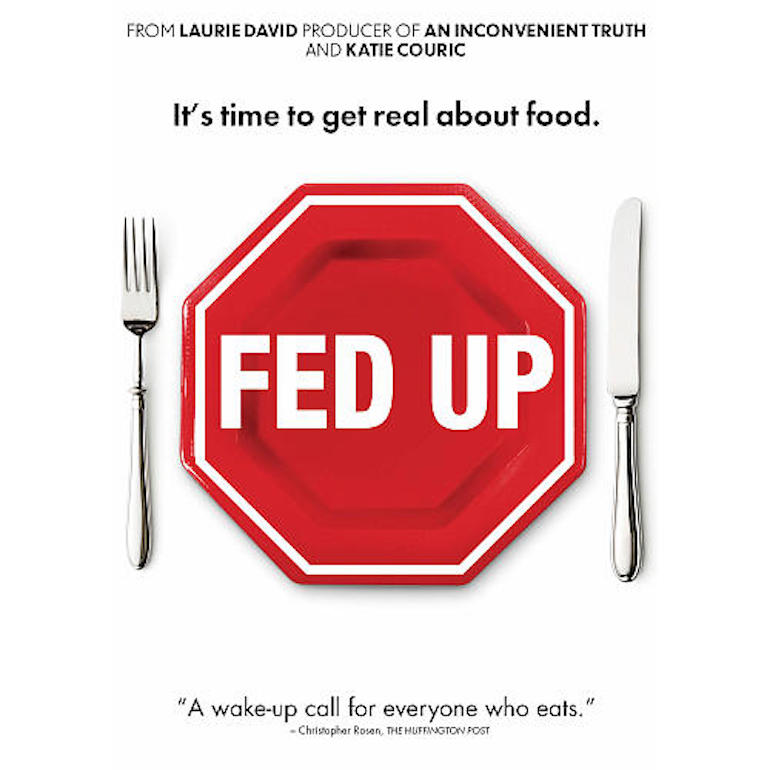Atlas Films, 2014; Directed by Stephanie Soechtig; Narrated by Katie Couric; PG.

Summary:
Everyone has seen and likely taken part in buying the food with the ever-familiar labels “Reduced Fat” or “Low Fat” or “Fat Free.” Fed Up begins here, saying that fat was removed from many foods, therefore negatively affecting the taste. This was in response to the McGovern report of 1977, a list of dietary goals for Americans, blamed high amounts of fat for a host of health problems. As a result, the food industry began adding massive amounts of sugar to help make up for the lack of flavor that had resulted from removing the fat. Fed Up argues that our bodies are not equipped to handle these high amounts of sugar—the American Heart Association recommends 6-9 teaspoons or 24-36 grams a day—and our body responds by depositing this excess energy into fat cells. The documentary examines the history of this progression, the involvement and potential culpability of the food industry and government, and the ethics of marketing to children.
Themes:
- Responsibility. The film discusses personal responsibility regarding food choices as well as the responsibility of the U.S. government to increasingly regulate American food habits.
- Prevention. Many illnesses are preventable, and the eating habits of Americans directly correlate with many fatal diseases.
- Activism. Fed Up urges those who are concerned about how the food industry impacts health to contact their representatives in Congress.
- Numbers. One 12-ounce can of Mountain Dew has 46 grams of sugar. If products listed the % Daily Value on the nutrition labels, this would be between 128%-192% of what the American Heart Association recommends (i.e. nearly twice the amount of sugar for an entire day).
- Manipulation. The government, advertisements, and (one could argue) the film itself all engage in manipulative practices because they believe they are justified.
Discussion Questions:
- Is the parallel of the food industry with tobacco companies accurate or fair? Why or why not?
- How does the film argue that eating less and exercising are simply not enough to address the health crisis?
- Respond to this comment, paraphrased from the film, “If a foreign nation was doing this to our families, we would go to war.”
- Fed Up says that public health is being sacrificed for special interests. How does the film make this case?
- Is marketing geared toward children a problem? Would your answer be different if specifically talking about cigarettes?
- Are the ideas that Fed Up discusses moral issues about which Christian need to be concerned? Why?